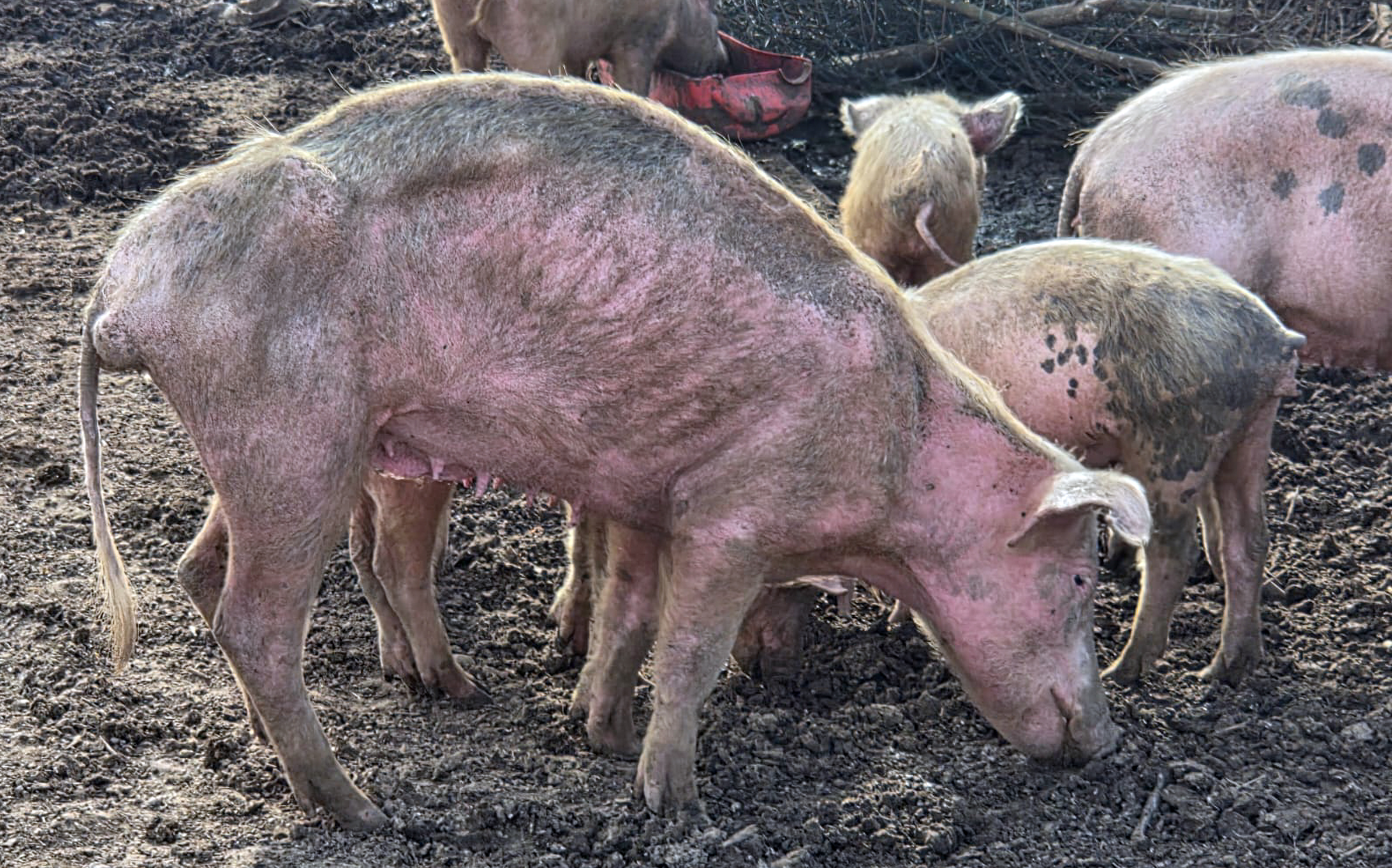A suspected outbreak of African Swine Fever (ASF) in the Cape Agulhas Municipality has triggered a pig euthanasia operation, raising urgent questions about animal welfare and disease control in the region. The incident involves up to 800 free-ranging pigs that were confined – apparently without adequate food or water – before the disease emerged.
This is a breaking story. Why so many pigs could be free-ranging and where they were living will be the focus of further investigation.
/file/dailymaverick/wp-content/uploads/2025/08/Hundreds-of-pigs-had-to-be-euthanised.jpg)
The situation first came to attention after a public alert posted by the Cape Agulhas Municipality on 2 August 2025, which referred to a “probable outbreak of African Swine Fever” among free-ranging pigs in Bredasdorp.
According to the alert, the municipality had earlier captured and enclosed between 1,000 and 1,500 pigs, with the stated aim of controlling the growing free-ranging population.
The National Council of SPCAs (NSPCA) reports that it was informed on 31 July by the Animal Anti-Cruelty League (AACL) Bredasdorp of suspected ASF at the facility. On 1 August, an inspection was conducted by the AACL and a state veterinarian from Swellendam, who found around 30 dead pigs showing symptoms consistent with ASF.
Samples were taken for PCR testing, but due to a national backlog, results have not yet been expedited.
‘Warning letters’
According to Jacques Peacock of the NSPCA, the local municipality was given three warning letters on possible contraventions of the Animal Protection Act as well as the need for urgent quarantine and safe carcass disposal protocols, but by 5 August, no formal response had been received.
A second site visit by AACL on 3 August found more than 30 additional mortalities and led to the humane euthanasia of eight pigs due to the severity of their condition. The NSPCA then escalated the matter to the South African Pork Producers Organisation and the Western Cape Veterinary Services on 4 August, calling for urgent assistance.
As of 5 August, a veterinary assessment is under way and an on-site assessment is being conducted. Based on the findings, further action will be taken in the interests of animal welfare and disease containment.
The Western Cape’s chairperson of the Standing Committee on Agriculture, Noko Masipa, has been tracking the issue and says the pigs were likely to have been from what he termed “backyard township farming”. He said while he understood the need for people to undertake this for economic reasons, it was beyond the control of any safety measures and therefore a health problem.
In a written reply to the Standing Committee on Agriculture, Economic Development and Tourism on the challenges facing informal pig farming, the provincial agriculture department confirmed that it had signed a three-year Memorandum of Understanding with the South African Pork Producers Organisation to establish a coordinated approach to supporting smallholder pig farmers.
“It is hoped that the agreement will contribute meaningfully to improving biosecurity and curbing the spread of animal diseases within the sector,” said Masipa.
Understanding ASF
ASF is a highly contagious and often fatal viral disease affecting domestic pigs and wild swine such as warthogs and bush pigs. The virus causes internal bleeding, fever and rapid death in infected animals. There is no vaccine or treatment. Although ASF does not infect humans, it can have catastrophic effects on pig populations and agriculture.
According to the World Organisation for Animal Health (WOAH), ASF has a mortality rate approaching 100%, and once detected in a region, culling is often the only containment strategy.
ASF is classified as a notifiable disease in South Africa. While it has historically been endemic in the northern regions of the country – where warthogs and Ornithodoros ticks act as reservoirs – its geographical reach is expanding. The Western Cape has experienced previous outbreaks, including in 2021 and 2024.
Risks of mishandling
The mass confinement of wild or free-ranging pigs is unusual in South African municipal practice and may have inadvertently created the conditions for disease spread. Veterinary epidemiology experts warn that stress, overcrowding and lack of nutrition severely compromise immune responses in pigs, making outbreaks more likely and more deadly.
Confining such a large number of unvaccinated free-ranging animals – especially without veterinary supervision – may have accelerated viral transmission. ASF can be transmitted by direct contact, through contaminated feed or by exposure to infected carcasses.
It is unclear whether adequate food and shelter were supplied and biosecurity protocols were followed during the initial capture or subsequent holding of the pigs by the Cape Agulhas Municipality. No official veterinary risk assessment or environmental impact study has been made public.
Broader implications
The economic implications of an uncontrolled ASF outbreak are significant. South Africa’s pork industry, though smaller than poultry or beef, contributes significantly to the economy and food security. ASF outbreaks can result in trade restrictions, movement bans and the collapse of small-scale farming enterprises. During China’s ASF epidemic in 2018-2019, more than 200 million pigs were culled, leading to global pork shortages.
South Africa has thus far avoided similar devastation, but the growing frequency of ASF outbreaks outside traditional containment zones is cause for concern.
Welfare and accountability
The handling of this crisis has drawn condemnation from animal welfare organisations, who argue that poor planning, lack of consultation and negligent oversight contributed to the suffering and deaths of hundreds of pigs. South Africa’s Animal Protection Act places a legal obligation on those in charge of animals to provide food, water, shelter, and to prevent unnecessary suffering.
Although the NSPCA has issued three warnings, it has not yet indicated whether it will pursue legal action against the Cape Agulhas Municipality, but has noted in statements that the conditions at the facility may constitute violations of this Act.
As of this writing, PCR test results from the Swellendam State Vet have not yet been released. If ASF is confirmed, the site will probably be placed under stricter quarantine, with expanded carcass disposal efforts and biosecurity measures.
Animal protection groups are calling for:
- A full public report from the Cape Agulhas Municipality detailing the rationale for the mass pig confinement;
- Clear timelines of actions taken and by whom;
- Release of veterinary assessments; and
- Review of provincial and municipal disease response frameworks. DM





 Up to 800 pigs have been culled in the Western Cape’s Agulhas region to stop the spread of ‘probable’ African Swine Fever. (Photo: Supplied)
Up to 800 pigs have been culled in the Western Cape’s Agulhas region to stop the spread of ‘probable’ African Swine Fever. (Photo: Supplied)